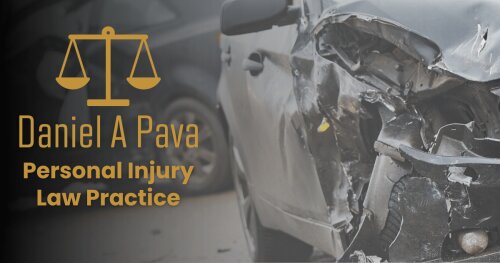Best Motor Vehicle Defect Lawyers in Springfield
Share your needs with us, get contacted by law firms.
Free. Takes 2 min.
List of the best lawyers in Springfield, United States
About Motor Vehicle Defect Law in Springfield, United States
Motor vehicle defect law covers injuries and damages arising from safety defects in cars, trucks, tires, airbags and other vehicle components. In Springfield, Illinois residents rely on both federal and state rules to pursue claims and recalls. The primary avenues are product liability theories and federal safety recall enforcement, supplemented by state consumer protection laws. Understanding who bears responsibility for a defect helps you decide whether to pursue a claim and how to do it effectively.
Defect claims often involve recalls, warranty coverage, and liability for injuries caused by a defect that existed at the time of sale or during ownership. Local courts in Springfield apply Illinois law to interpret liability, damages, and procedural requirements. A knowledgeable attorney can help assess whether a defect caused your injury, and how best to pursue compensation from manufacturers, dealerships, or other responsible parties.
"Recalls are issued when a safety related defect or non compliance exists in motor vehicles or equipment, and manufacturers are required to remedy the defect at no charge."
Why You May Need a Lawyer
Legal help is often essential after a motor vehicle defect incident in Springfield. Below are concrete scenarios showing when consulting an attorney can make a difference.
- A driver in Springfield receives a recall notice for an airbag defect but the manufacturer refuses to cover the repair costs or provide a replacement vehicle while repair is pending.
- You bought a used car in Springfield with a known defect that was not disclosed by the seller, and the defect caused a crash or injury months later.
- A vehicle tire defect led to a rollover on I 55 near Springfield, resulting in serious injuries and extensive medical bills.
- An aftermarket brake component fails during city driving, causing a collision and you suspect the part was not properly certified for safety compliance.
- Your family was injured by a defective seat belt restraint, and the dealership or manufacturer disputes liability or coverage under warranty.
- You discover a pattern of recalls for a specific model in the Springfield area and believe there is a class wide defect that affects multiple owners.
In each scenario, an attorney can help with early case evaluation, preserve evidence, and coordinate with manufacturers or regulators. An experienced motor vehicle defect lawyer in Springfield can also help you navigate insurance negotiations, risk of arbitration, and potential lawsuits in state or federal court.
Local Laws Overview
Springfield residents rely on a mix of federal safety standards and Illinois state statutes to handle motor vehicle defect claims. The following laws are central in this area and are commonly referenced in conversations with legal counsel.
The Federal Motor Vehicle Safety Act governs overall safety standards and recall obligations for motor vehicles and equipment. Enforcement is carried out by federal agencies, and violations can create avenues for private lawsuits in some circumstances. Always check the current federal safety framework for your specific defect issue.
The Illinois Vehicle Code, part of the Illinois Compiled Statutes, governs licensing, vehicle registration, and safety related requirements within the state. It provides the backbone for Illinois motorists, including procedures related to defective vehicle components and enforcement actions by state authorities. For the latest text, consult the Illinois General Assembly resources.
Illinois also enforces the Illinois Consumer Fraud and Deceptive Practices Act, which protects consumers from misrepresentations by sellers and manufacturers. If a seller hides a known defect or makes false statements about a vehicle’s safety, you may have a viable claim under this Act.
"Manufacturers must disclose safety related defects and remedy them under recall when required by federal law."
For Springfield residents seeking practical guidance, official state sources provide the current text and procedural details. Always verify the exact statutory language and recent amendments on government sites before filing a claim.
Key resources and reference points include:
- The Federal Motor Vehicle Safety Act and related National Highway Traffic Safety Administration (NHTSA) information on recalls and safety standards.
- The Illinois Vehicle Code as codified in the Illinois Compiled Statutes, which governs vehicle safety and enforcement within the state.
- The Illinois Consumer Fraud and Deceptive Practices Act for addressing misrepresentations and unfair practices by sellers or manufacturers.
Official sources for Springfield residents include state legislature pages and federal safety authorities. These sources provide the authoritative text and current regulatory context you will rely on in a claim.
Frequently Asked Questions
What is a motor vehicle defect claim?
A motor vehicle defect claim asserts that a safety defect caused injuries or damages. It can involve product liability or recall related remedies, and may require proof of the defect and its link to your harm.
How do I prove defect caused my injury in Springfield?
You should gather medical records, accident reports, repair invoices, recalls notices, photos of the defect, and witness statements. An attorney will help connect the defect to your injuries and establish the liability theory.
When should I file a recall related injury claim?
File promptly after the injury and after the defect is identified. Early action helps preserve evidence and preserves your rights under applicable statutes of limitations.
Where can I find official recall information for my vehicle?
Recalls are published by manufacturers and monitored by NHTSA. Start with the NHTSA recall database and your vehicle’s manufacturer pages for the most current notices.
Why do I need an attorney for vehicle defect cases?
An attorney can assess liability, manage evidence preservation, handle insurance disputes, and pursue compensation in appropriate forums. They also help with timelines and procedural requirements.
Can I sue the dealer for misrepresenting a used car defect?
Yes, if misrepresentation caused your purchase of a defective vehicle. You may pursue claims under the Illinois Consumer Fraud and Deceptive Practices Act or contract law, depending on the facts.
Should I file a claim with my insurer before contacting a lawyer?
You can notify your insurer, but do not settle a claim without legal advice if a defect is involved. An attorney can protect your rights and advise on settlement vs litigation options.
Do I need to preserve evidence after a crash in Springfield?
Yes. Preserve defective parts, repair receipts, photos, tire treads, and maintenance records. Evidence is crucial for establishing defect causation and manufacturer liability.
Is there a time limit to file a product liability claim in Illinois?
Yes, Illinois imposes statutes of limitations on product liability claims. An attorney can help you determine the applicable deadline based on your injury and date of discovery.
How much does a Springfield motor vehicle defect lawyer cost?
Costs vary; many lawyers work on a contingency basis for injury cases, meaning fees are paid from any settlement or award. An initial consultation will reveal your fee structure.
What is the difference between a recall and a defect suit?
A recall is a manufacturer obligation to fix a safety defect, often at no charge. A defect suit seeks compensation for injuries or damages caused by the defect outside recall remedies.
Can I join a class action for a common defect?
Class actions can be appropriate for widespread defects. An attorney can evaluate whether a class action or individual suit is best given the facts and the number of affected Springfield residents.
Additional Resources
Access to reliable, official information can support your understanding and decisions. Here are current government and official resources relevant to motor vehicle defect matters.
- National Highway Traffic Safety Administration (NHTSA) - U.S. federal agency responsible for vehicle safety standards and recalls. Uses recall databases and safety campaigns. https://www.nhtsa.gov/recalls
- Illinois General Assembly - Vehicle Code - Official state statutes governing vehicle safety, registration and related duties in Illinois. https://www.ilga.gov/legislation/ilcs/fulltext.asp?path=625ILCS5
- Illinois General Assembly - Consumer Fraud and Deceptive Practices Act - State law addressing misrepresentation and unfair practices by sellers and manufacturers. https://www.ilga.gov/legislation/ilcs/fulltext.asp?path=815ILCS505
Next Steps
- Identify the issues you face and gather documents within 1 week. Collect recall notices, repair receipts, accident reports, medical bills, and photos of the defect.
- Schedule a consultation with a Springfield motor vehicle defect attorney within 2-3 weeks. Prepare a summary of events, injuries, and any communications with manufacturers or dealers.
- Have the attorney perform a case assessment and explain potential liability theories, remedies, and likely timelines within 1-2 weeks after the meeting.
- Decide on an approach with your attorney, including whether to pursue a claim in state court or discuss federal avenues. Expect the initial filing to occur within 1-2 months if pursued.
- During the case, preserve all evidence and avoid settling without advice. Your attorney will coordinate with experts to establish defect causation.
- Monitor recalls and safety alerts from NHTSA during the case, and consider augmenting your claim with consumer protection theories if misrepresentation occurred. Use official sources for updates.
- Agree on a fee arrangement and expected timelines for settlement or trial with your attorney before proceeding. Contingency fee arrangements are common in injury cases.
Lawzana helps you find the best lawyers and law firms in Springfield through a curated and pre-screened list of qualified legal professionals. Our platform offers rankings and detailed profiles of attorneys and law firms, allowing you to compare based on practice areas, including Motor Vehicle Defect, experience, and client feedback.
Each profile includes a description of the firm's areas of practice, client reviews, team members and partners, year of establishment, spoken languages, office locations, contact information, social media presence, and any published articles or resources. Most firms on our platform speak English and are experienced in both local and international legal matters.
Get a quote from top-rated law firms in Springfield, United States — quickly, securely, and without unnecessary hassle.
Disclaimer:
The information provided on this page is for general informational purposes only and does not constitute legal advice. While we strive to ensure the accuracy and relevance of the content, legal information may change over time, and interpretations of the law can vary. You should always consult with a qualified legal professional for advice specific to your situation.
We disclaim all liability for actions taken or not taken based on the content of this page. If you believe any information is incorrect or outdated, please contact us, and we will review and update it where appropriate.










